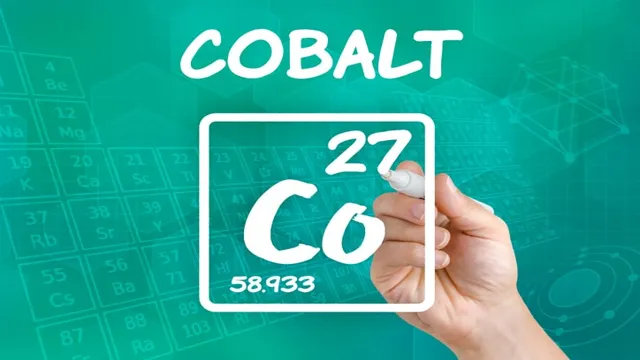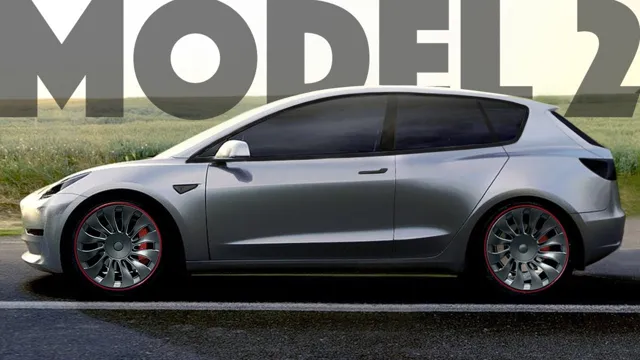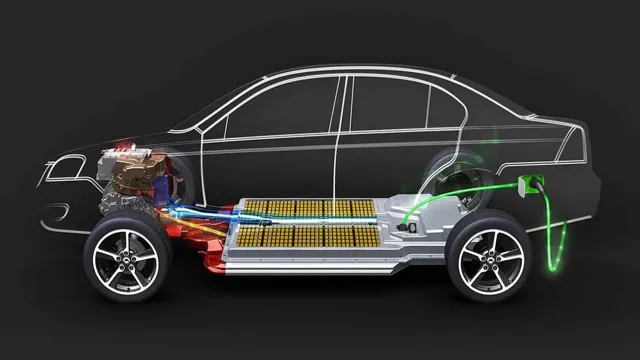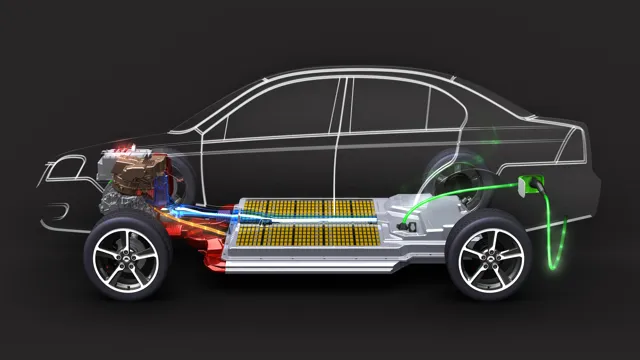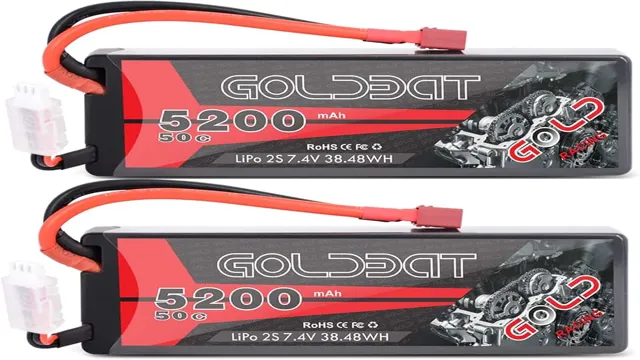Cobalt: The Key Element Powering Your Electric Car Batteries
If you’re considering buying an electric car, you may be familiar with the hype surrounding their eco-friendliness and energy efficiency. But have you ever stopped to consider the role of cobalt in electric car batteries, and why it matters? This element may not be widely known, but it plays a crucial role in the production of rechargeable batteries used in electric cars. In fact, a single electric car battery can contain up to 15 kilograms of cobalt! So why does this matter? Well, cobalt is a finite resource, and its availability is becoming increasingly scarce.
This means that as the demand for electric cars increases, so does the need for cobalt, and this demand could potentially lead to unsustainable mining practices and environmental damage. Therefore, it’s essential to understand the significance of cobalt in electric car batteries and to explore more sustainable alternatives. In this blog, we’ll take a closer look at the reality of cobalt mining, the impact on the global supply chain, and what manufacturers are doing to reduce their reliance on this precious resource.
Let’s dive in!
What is cobalt and why is it important?
Cobalt is a chemical element with the symbol Co and atomic number 2 It’s a hard, silver-gray metal that resembles iron and nickel. Cobalt is an essential component in the production of rechargeable batteries, including those used in electric cars.
The material’s high energy density and durability make it crucial for the manufacturing of lithium-ion batteries. However, cobalt’s supply chain is not without its challenges. About 60% of the world’s cobalt is mined in the Democratic Republic of the Congo, where human rights abuses and child labor are prevalent.
Additionally, the high demand for electric vehicles has caused the price of cobalt to rise significantly. Therefore, manufacturers are exploring alternatives to cobalt that are cheaper and more sustainable, such as nickel. In conclusion, cobalt plays a vital role in the electrification of transport, and its responsible production and sourcing are crucial to ensuring a sustainable future.
Cobalt’s role in electric car batteries
Cobalt is a metallic element that plays a crucial role in the production of batteries used in electric cars. It is an essential component of the lithium-ion batteries that power electric vehicles and helps to increase their lifespan and performance. The reason cobalt is so important is that it has the ability to store and release energy very efficiently.
This allows electric cars to travel longer distances and deliver more power. In fact, without cobalt, it would be much more difficult and expensive to produce high-quality batteries, which are necessary for the widespread adoption of electric cars. Cobalt is a finite resource, and as demand for electric vehicles continues to grow, there are concerns about shortages and production challenges, which will need to be addressed by the industry in the coming years.
The impact of cobalt on the environment
Cobalt is a crucial mineral used in the production of electric car batteries. Although electric cars are known for their positive impact on the environment, their batteries have some serious consequences when it comes to cobalt usage. The mining process of cobalt alone can cause significant harm to the environment, including soil contamination, water pollution, and deforestation.
Additionally, cobalt mining has been linked to serious human rights violations, as many of the mines are located in impoverished African nations. The extensive usage of cobalt in electric cars has also led to concerns about the sustainability of cobalt reserves. Researchers are now working to develop new battery technology that uses less or no cobalt, but it will require considerable time and investment to make this a reality.
For now, consumers can make more sustainable choices by supporting companies that responsibly source their cobalt and recycle old batteries.
Mining practices and their consequences
Cobalt mining has a profound impact on the environment. Extraction of this valuable metal from the earth requires significant energy and water consumption, resulting in carbon emissions and contamination of local water bodies. Moreover, cobalt mining is often associated with deforestation and displacement of local communities, leading to the loss of important biodiversity and traditional livelihoods.
In addition, cobalt mining poses significant health risks to miners, who are often exposed to toxic chemicals and dangerous working conditions. The indiscriminate mining of cobalt has been linked to several environmental and social issues, including ecosystem degradation, deforestation, pollution, and human rights abuses. Therefore, it is essential to promote sustainable mining practices and reduce our dependency on cobalt-based products to protect the environment and safeguard the rights of affected communities.
Disposal and recycling of electric car batteries
Electric car batteries have become a popular alternative to traditional gas-powered vehicles, but what happens to these batteries when they reach the end of their lifespan? Disposing of electric car batteries can have a significant impact on the environment, particularly when it comes to the disposal of cobalt. Cobalt is a critical component of electric car batteries and can be harmful to the environment if not disposed of in the proper way. The process of disposing of cobalt involves breaking down the battery and extracting the cobalt for reuse in other batteries.
However, if the battery is not disposed of properly, the cobalt can seep into the ground and contaminate the soil and groundwater. When it comes to recycling electric car batteries, it’s essential to follow proper disposal protocols to preserve the environment’s integrity. Recycling facilities are equipped to handle the breakdown and extraction of the valuable materials for reuse, which reduces the environmental impact of disposing of the batteries.
As electric cars become increasingly popular, it’s crucial to develop sustainable methods of battery disposal and recycling to minimize the impact on the environment. By creating guidelines for the proper disposal and recycling of batteries, we can ensure that the expanding use of electric cars does not come at the expense of our environment. In conclusion, the disposal and recycling of electric car batteries are significant issues with the potential to impact the environment in harmful ways.
Cobalt, in particular, is a critical component of these batteries and must be disposed of properly to prevent contamination. By implementing guidelines for the proper disposal and recycling of electric car batteries, we can ensure that these vehicles can be utilized sustainably and be confident that we are doing our part in protecting the environment.
The future of cobalt in the electric car industry
Cobalt is an essential element used in the production of rechargeable lithium-ion batteries, commonly used in electric car batteries. However, with concerns over the ethical and environmental implications of cobalt mining, there is a shift towards cobalt-free battery technology. Several companies are investing in developing alternative battery chemistries, such as solid-state batteries, which may use other elements like sodium or magnesium instead of cobalt.
Furthermore, automakers are also focusing on reducing the amount of cobalt used in batteries or sourcing it ethically. While the future of cobalt in the electric car industry is uncertain, what is clear is that the industry is moving towards more sustainable battery options.
Alternatives to cobalt in battery technology
The future of cobalt in electric cars is uncertain, as the mineral is expensive and often unethical to mine. However, scientists are exploring alternatives to cobalt in battery technology. One promising option is nickel-cobalt-manganese (NCM) batteries, which use less cobalt than traditional batteries.
Another option is solid-state batteries, which eliminate the need for cobalt altogether. These new technologies have the potential to not only reduce the cost and environmental impact of electric cars, but also make them more accessible to the general public. While cobalt is currently a crucial component in battery technology, the future may hold a shift towards more sustainable and ethical alternatives.
Market demand and supply of cobalt
As the demand for electric cars continues to grow, so does the need for cobalt, a key component in the batteries that power them. The future of cobalt in the electric car industry is bright, with projections indicating that global demand could reach up to 120,000 tons by 202 While cobalt prices have been volatile in recent years, due in part to concerns about unethical mining practices in the Democratic Republic of Congo, efforts are being made to increase ethical and sustainable cobalt sourcing.
This includes the development of new technologies for recycling and reusing cobalt, as well as the exploration of alternative battery chemistries that rely less on cobalt. While the future of cobalt may be uncertain, one thing is clear: as long as the demand for electric cars continues to rise, the demand for cobalt will follow suit.
What you can do to make a difference
If you want to make a difference in reducing the negative impact of cobalt in electric car batteries, there are a few things you can do. First, you can choose to support companies that prioritize ethical sourcing and manufacturing processes for their battery materials. This means looking for companies that commit to reducing their environmental footprint and ensuring fair labor practices in the production of their battery components.
Additionally, you can try to reduce your personal demand for electric vehicles and other cobalt-based products by exploring alternative modes of transportation and making conscious choices about your consumer habits. Every small step can make a difference in reducing the demand for cobalt and promoting sustainable practices in the production of electric car batteries.
Supporting sustainable mining practices
As consumers, we have the power to support sustainable mining practices. One simple action we can take is to research the brands we buy from and choose those that source their materials responsibly. Look for companies that use recycled metals and minerals or support sustainable mining initiatives.
Another way to make a difference is to reduce our consumption of products that rely heavily on mined materials, such as electronics. By using our devices for as long as possible and properly recycling them when we’re done, we can decrease the demand for new materials and, in turn, reduce the impact of mining on the environment. It’s important to remember that our choices as consumers can make a difference in creating a more sustainable future for the mining industry.
Choosing electric cars with lower cobalt content
If you’re concerned about the environmental impact of electric cars, choosing models with lower cobalt content can make a big difference. Cobalt is a valuable but increasingly expensive mineral that is commonly used to make lithium-ion batteries for electric cars. Unfortunately, mining cobalt has serious environmental and social consequences in many parts of the world.
But there are alternatives, such as batteries made with nickel, manganese, and other materials that require little or no cobalt. By choosing electric cars with these types of batteries, you can help reduce demand for cobalt and support more sustainable manufacturing practices. Plus, you’ll enjoy the many benefits of electric cars, such as lower fuel costs and fewer emissions.
So next time you’re shopping for an electric car, look for models with lower cobalt content and do your part to protect the planet.
Conclusion
In conclusion, cobalt may not be the star of the show in electric car batteries, but it sure is a vital supporting actor. Like a true team player, cobalt helps make the battery work efficiently and sustainably, allowing us to hit the road with minimal emissions and maximum power. So, while it may not be the flashiest element in the periodic table, cobalt is a crucial component in the green revolution of transportation.
“
FAQs
What is the role of cobalt in electric car batteries?
Cobalt is one of the crucial components in electric car batteries as it enhances the battery’s energy density, which means more power can be stored in a smaller space.
How much cobalt is typically found in an electric car battery?
The amount of cobalt in an electric car battery varies, but on average, it comprises around 5-10% of the battery’s total weight.
Are there any alternatives to cobalt in electric car batteries?
Yes, there are alternatives such as nickel and manganese, but cobalt is still the preferred choice due to its superior performance.
How does the demand for cobalt in electric car batteries affect its global supply and price?
The increasing demand for cobalt in electric car batteries has put pressure on global supply, leading to rising cobalt prices and concerns about ethical mining practices in countries where most of the world’s cobalt is mined.
